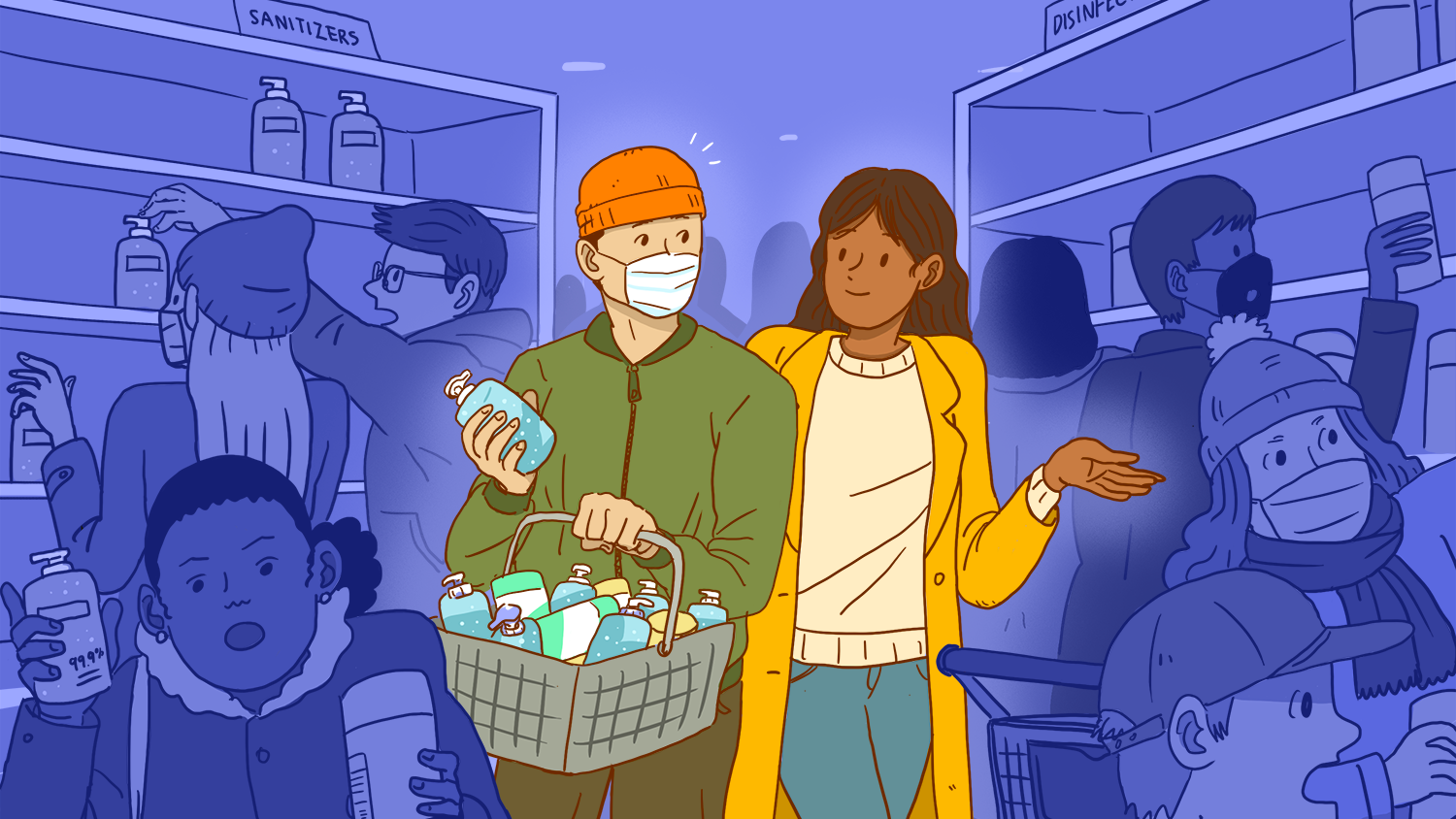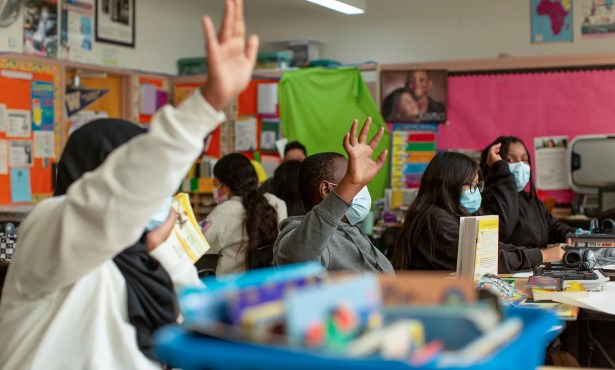10 Ways to Manage Your COVID-19 Stress
Santa Barbara Doctor Offers Tips for Coping with Pandemic Panic

If you’re not stressed by the COVID-19 pandemic, you’re probably not paying attention.
How can we all deal with this stress without going nuts?
1. To begin, take a breath: Put your hand on your abdomen and as you inhale, feel your abdomen expand. Pay attention to one full inhalation and one full exhalation. A “mindful diaphragmatic breath” relaxes us in two ways:
Diaphragmatic or belly breathing stimulates the parasympathetic nervous system.
Fully focusing on the sensation of one breath without judgment gives us that little mindful moment that can also reduce stress. So do it many times a day.
2. Follow wise advice and do the right stuff. Listen to the Centers for Disease Control and Prevention (cdc.gov) regarding social distancing and other appropriate measures. If you don’t have a fever, you have itchy eyes and sneezing like you did last year, and you have not been exposed to the virus, it’s probably not COVID-19. If you have a fever, cough, and shortness of breath and you’ve been to Italy or had a potential exposure, you should call your doctor to get tested and get care if needed (and obviously stay away from others). If your symptoms are between the two extremes, check with CDC guidelines and other websites and decide what to do.
3. You might feel overwhelmed with sudden changes: “With school out, who watches the kids?” “How do I make up for lost pay?” etc. Let go of thoughts of how life should be different, feel that diaphragmatic breath, and do the next task on your list with your full attention. The next task might be to make a plan, get help, or just work on another task ― just do what’s next, one step at a time. Also, remember: There is usually more stress having a task hang over your head than just doing it.
4. Don’t get stressed about being stressed. The more you resist stress, the worse it gets. Instead, interpret the extra adrenaline as having a high energy level or an energy burst. Perhaps you can use the energy and take a run, or just feel it flow through your veins.
5. Keep things in perspective. Sure, there are big things going on now. However, our brains can make relatively small things look really big, too. Remember that your financial portfolio is not your life portfolio. Your ability to think, talk, walk, see, hear, and love are way more important than the current value of a financial investment. Our brains are unable to process many things at one time, so our full attention becomes focused on one problem. Gratitude is not a corny practice; it is bringing ourselves back to reality when we’ve lost perspective. Multiple times a day, list your blessings ― shelter, food, health (focusing on what is working, not just what isn’t working) and, most of all, the people in your life.
6. Reframe extra time at home. Hygge (pronounced hoo-guh) is a Danish term for being cozy and appreciating the moment. (Think of having hot cocoa by the fire with loved ones and playing a board game.) Much of our lives are spent seeking the next thrill, vacation, concert, or show. In these times of social distancing, use and appreciate the time to read, write, get home tasks done, watch movies, play board games with the family, and connect. Remember the people far away who could use some interaction. FaceTime Grandma, call your aunt, and Skype your old college buddy. Make sure they are doing well, and if they’re not, lend an ear and your warmth.
7. Take care of yourself: Eat nutritiously, with plenty of veggies and some fruit, and get enough sleep. If you have trouble sleeping, don’t try too hard. Obsessing about how vital it is to get to sleep won’t get you back to sleep. Think of it as a perfect time to meditate. (For free help, go to the last exercise at stressremedy.com/audio.) Or read a boring book until you are drowsy. Going over thoughts again and again? Try writing them down. Then try meditating again. Focus on the sensation of one breath at a time or repeat a word like “one.” When your mind wanders, return patiently, again and again, to the sensation of the breath or the word. Then you might focus on relaxing one body part at a time, starting with your feet and working your way to your head.
8. Remember that the situation is evolving. Some decisions are easy: If you’re sick, stay away from others; while we have this epidemic, avoid going to big concerts; etc. There may be borderline decisions, too. If your plans are two months from now, and there’s no penalty for postponing a decision, remember that the right answer may become very clear by that time, so why stress now? On the other hand, if you’re responsible for organizing an event, canceling sooner rather than later will let others make better plans. Overall, remember that the importance of our community’s wellbeing should be more important than saving a few dollars.
9. Know how to deal with emotions and when to ask for help. Accept your emotions for now. Otherwise, you’ll get sad about being sad or anxious about being anxious. You don’t need to justify your emotions. Simplify them and let go of the metaphors you hear in songs and movies. Know it will pass. If it’s prolonged, please ask for help. Talk to a counselor and/or your primary care provider. Getting help when needed is a sign of maturity and wisdom. And don’t wait until you’re at wit’s end; get help early and often.
10. Most of all, be kind and compassionate. Money can buy happiness, but only if you use it to help others. We’ve evolved to take joy in helping others, connecting with others, and working in teams. That’s how we puny humans without claws and fangs survived. The happiest people are not the richest ones but the ones who have learned to be compassionate. A concerning number of people will die form COVID-19, and we need to treat it as an emergency, but all of us suffer when there’s a lack of compassion. Think of the people closest to you and how you want them to be happy and healthy, and then bring those same thoughts and feelings to others. Be generous with your kind words and your kind deeds. We all will benefit, and so will you. COVID-19 is a wakeup call, a reminder that people are suffering emotionally and physically. Our salvation is in our compassion.
Dr. Jay Winner is a family physician, founder of Sansum Clinic’s Stress Reduction Program, and author of Relaxation on the Run.


